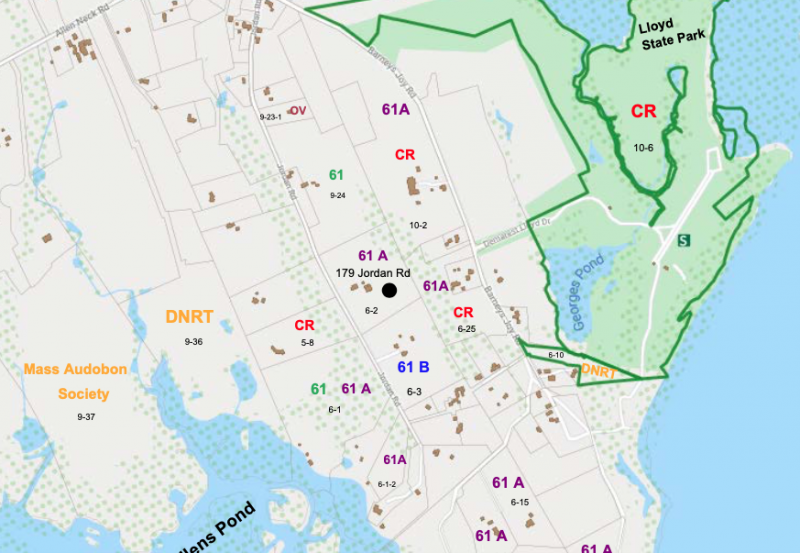Town officials support keeping Jordan Road land as open space
Town officials have expressed support for maintaining agricultural land at 179 Jordan Road as open space rather than seeing it developed.
The town has been notified that the 16.71-acre property is being sold by its current owners and is being eyed by developers for a possible subdivision, Planning Director Christine O’Grady said, adding that two purchase and sales agreements for the land have been submitted to the town.
The land falls under Chapter 61 designation, which requires the property to remain in agricultural use while owned by the current owners.
Should the owner plan to sell, as in this case, the town has the first rights to purchase the land. The land could then potentially be turned over to a nonprofit entity that would maintain the property as open space.
The land could accommodate five lots if subdivided, O’Grady said.
“This is one of the most precious properties in all of Dartmouth,’’ Planning Board member Stephen Taylor said at a July 12 meeting. “We should do everything we can to preserve it.’’
The Conservation Commission also supports keeping the land as open space.
Although no formal vote has been taken by the Agricultural Commission, Fred Dabney, a member of the commission, told Planning Board members at their meeting that he “can safely say that the Agricultural Commission definitely and unanimously supports’’ keeping the land as open space.
The property is surrounded by 145 acres of land with conservation restrictions, said Dexter Meade, executive director of the Dartmouth Natural Resources Trust.
“There are a number of really worthwhile reasons to protect the property,’’ he said.
Nearly 1,500 acres of protected land are located within a mile of the Jordan Road property, he said, including Demarest Lloyd State Park to the east and much of Allens Pond Wildlife Sanctuary to the west, which Meade described as “two of Dartmouth’s gems of protected property.’’
All woodlands on the Jordan Road property have been designated as rare species habitat, Meade said, and 4.5 acres of the land is deemed as Critical Natural Landscape by the state. That designation means the land supports habitat for a wide range of species and is important for the ecological process, Meade noted.
“A lot of people care for this land,’’ said Andy Burns, who lives near the property. Keeping the land as open space in some form would be a “great outcome.’’
Any final decision would have to be made by the Select Board, Planning Board chair Kevin Melo noted. He added that the Planning Board merely expresses support for maintaining the land.
The Dartmouth Natural Resources Trust supports “working with the town to try to protect the property,’’ Meade said, although the trust may not necessarily purchase the parcel.
The Buzzards Bay Coalition and the Trustees of Reservations have also reached out to town departments to express support for maintaining the land as open space, O’Grady noted.
Other communities have considered alternatives in similar situations, Melo said.
He noted that one town sold Chapter 61A land to a young family who agreed to maintain the land for agricultural use.
“That’s just as good an option,’’ Taylor said. “The important part is to preserve it, it doesn’t matter who owns it.’’













